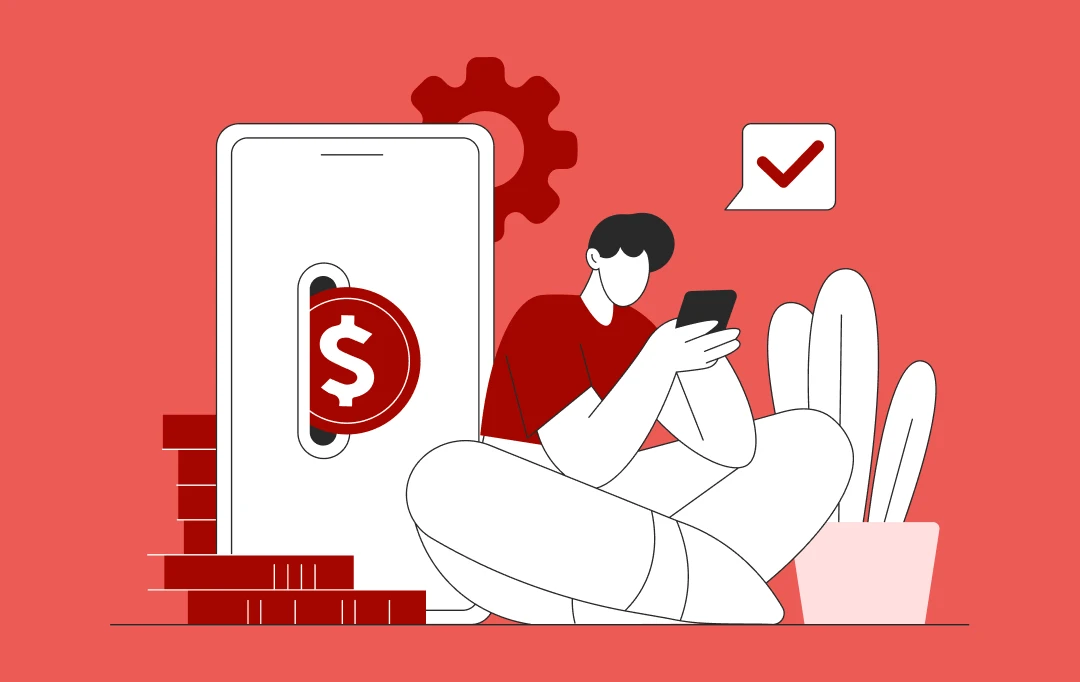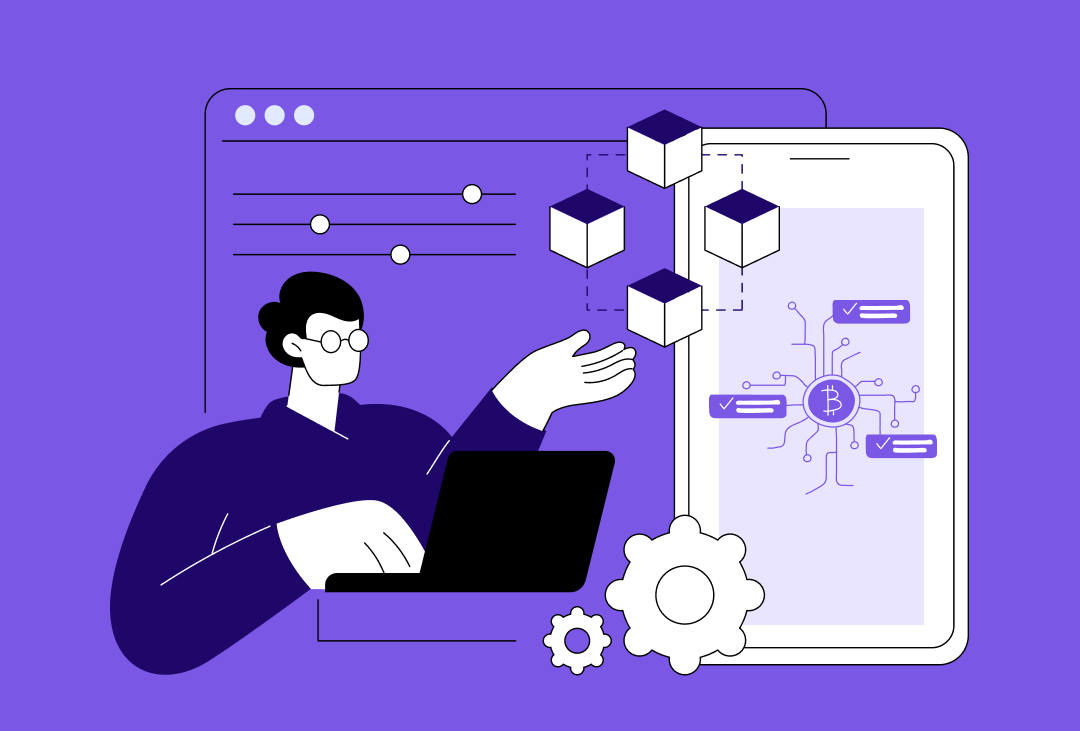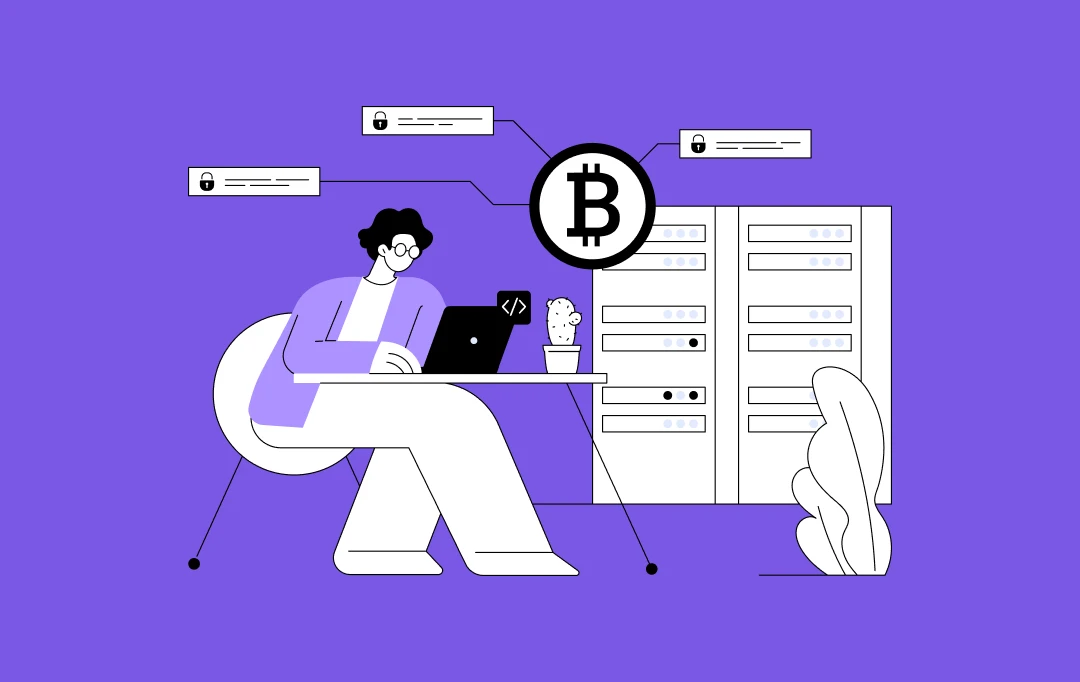- Overview on NFT Marketplace Development Cost
- NFT Marketplace App Features That Influence The Development Cost
- 1. Storefront
- 2. Advanced search functionality
- 3. Create listing
- 4. Auction and buy
- 5. Wallet integration
- 6. Instant notification
- 7. Ratings
- Other Factors That Impact Your NFT Marketplace Development Cost
- 1. NFT tech stack:
- 2. NFT marketplace category niche
- 3. NFT development team and process
- 4. NFT marketplace maintenance cost
- NFT Marketplace Development Monetization Models
- 1. Royalty
- 2. Listing
- 3. Promotions
- 4. Bidding
- Criteria to Consider Before Building an NFT Marketplace
- 1. Non-fungible token standards
- 2. Non-fungible token metadata
- How can Appinventiv Help You Build an NFT Marketplace?
- Frequently Asked Questions on NFT Marketplace Development
NFT marketplaces like OpenSea, Rarible, and Superfarm have become the epicenter of funding and high revenue. As per Statista’s report, the NFT market revenue is expected to show an annual growth of 27.26% (from 2022-2027) and result in a projected amount of about $8,412 million by 2027.

This is a sign that every business model that NFT is touching is turning into gold. This is probably why startups and enterprises are now buying/selling non-fungible tokens and investing in the NFT marketplace development. Before you invest in your own NFT marketplace development , it’s better to get your hands around the overall required cost.
Therefore, If you are looking to get an estimate around NFT marketplace development cost, you are at the right place.
This article familiarizes you with the cost to create an NFT marketplace, factors that influence your NFT marketplace development cost, and certain criteria to consider before building an NFT marketplace.
In case you are looking for a primer on NFT, head on to our article – What is NFT And How Does It Works – A Detailed Guide.
So, without further ado, let’s get started!
Overview on NFT Marketplace Development Cost
The cost to create an NFT marketplace ranges from $50,000 to $500,00 and may vary as per the customizations you need to meet your business needs. If you want to build your own NFT marketplace from the ground up, then the NFT cost for that will be higher than the ready-made solution.
The platform functionality follows the same pattern. You’ll have to extend your budget on marketplace development if your requirements lead to a complicated platform.
Not only the platform but the tools and technologies used also determine the NFT cost. Apart from these aspects, factors such as NFT marketplace features, your outsourced blockchain development team’s size, tech stack, NFT market category also impact your NFT development cost.
So, how about we discover each factor in detail to get the breakdown of the cost to create an NFT marketplace?
NFT Marketplace App Features That Influence The Development Cost
If you are looking to develop an NFT marketplace, features are one of the first and most major cost affecting factors that you need to look into. Your outsourced NFT marketplace development company must create a user experience that makes it simple to search for desired files and a back-end process that seamlessly handles complicated transactions.
Keeping that in mind, below are a few must-have features that you need to consider for custom NFT marketplace development.

1. Storefront
This section of the marketplace provides users with information around the article: details, owner, bids, price history, etc. Storefront acts as a dashboard that enhances customer engagement.
2. Advanced search functionality
While building your NFT marketplace, make sure the platform features support category tagging and management functionality. This would make it easy for the users to look for collectibles that they are willing to buy.
3. Create listing
This feature of the NFT marketplace development is centered around the sellers. The platform should allow users the feasibility to create listings where they can add in their NFT details.
4. Auction and buy
An efficient NFT buying system is a must-have part of the NFT marketplace development services. You should give users the option to add bid amount, expiration date, and a watchlist showing details of the bid’s status.
5. Wallet integration
Your users will have to make use of wallets for sending, receiving, and storing NFTs and cryptocurrencies. You can either create your own wallet in-app or integrate existing wallets inside the application to make the experience frictionless.
[Read: How much it costs to develop a crypto wallet on Blockchain.]
6. Instant notification
Your NFT business model should have an instant push notification tool that sends all the newest information via emails and push notifications about real-time data such as the debut of collectibles, new non-fungible tokens, future auctions, and so on. A strategized push notification may also help you with higher platform conversion rate.
7. Ratings
Ratings are a useful tool for both buyers and sellers in the NFT business model. Users are more likely to do business with those who have a strong reputation. A scoring system can also prevent negative behaviors like false representation or retreating of a transaction before the smart contract goes into effect.
While these are the must-have features of an NFT marketplace, there are a number of other features as well such as the metaverse integration, multi-payment gateway integration, etc.
The best part of NFT platform development is that you get the option to merge NFT platforms, NFT crypto platforms, and NFT trading platforms – all in one space.
Considering the wide spectrum of the NFT feature range, the NFT marketplace development cost based on features might range from $5,000 – $50,000 and above, if you choose to add third party modules.
While the above mentioned cost breakdown is solely based on the feature set, there are other associated factors adding up to your final cost.
Other Factors That Impact Your NFT Marketplace Development Cost
It takes enormous time and effort to create an NFT platform from the foundation with cutting edge features and security measures. If you are already familiar with blockchain based development, you would know that NFT development requires additional integrations to function securely.
That being said, factors such as the platform complexity and integration might also add to your cost. Moreover, here is a comprehensive list of primary factors associated directly with the NFT marketplace development cost.
1. NFT tech stack:
The tech stack required to develop an NFT marketplace plays an essential role in cost assessment. The standard tech stack used by NFT developers is NFT standards, blockchain, frontend platforms and storage platforms. Here is a detailed analysis of the technologies used:
| Blockchain platforms | Flow, Tazos, Cardano, Ethereum |
| Storage platforms | IPFS, Pinata, FileCoin |
| NFT standards | ERC-1155, ERC-721 |
| Frontend frameworks | React, Vue, Angular |
NFT platform complexity consists of all NFT market app development features, third party integrations, and other supporting backend services.
2. NFT marketplace category niche
The cost of your NFT platform development also relies on the NFT categories you have chosen as your niche. For instance, if you are going for the collectibles, your platform needs to be more secure than the open app market.

There are top four NFT marketplace categories described below:
- Open and premium marketplace- This is one of the most common NFT marketplace. However, the platform has less features than closed ones. One of the most popular examples of open and premium marketplace is OpenSea.
- Curated and non-curated marketplace- Curated marketplace acts as a friendly environment for authorized artists looking to sell their work. On the other hand, a non-curated marketplace promotes both authorized and non-authorized artists, making it easier for users to sell. Spotify can be the prime example of a non curated marketplace.
- Collectibles marketplace- This is the perfect marketplace for collectors who sell and buy various digital NFTs. For instance NBA sports highlights are available as NFTs here for sports fans.
- Games marketplace- The gaming industry is really popular with NFTs. specifically online gaming. Here the users sell, buy and invest on various gaming platforms to attain advanced features, avatars or levels.
Based on the above four categories, here is a cost analysis of NFT marketplace development.
| Open and premium marketplace | $50,000-$150,000 |
| Curated and non-curated marketplace | $80,000-$200,000 |
| Collectibles marketplace | $60,000-$250,000 |
| Games marketplace | $1000,000-$500,000 |
3. NFT development team and process
You will need to outsource your NFT project to a range of blockchain NFT experts that can implement a successful design, development and testing plan. Your NFT marketplace development team requires below roles:
- Project managers
- NFT developers
- UI/UX designers
- Solution architect
- Business analysts
- Quality assurance officers etc.
The average cost of NFT developers in the US ranges from $100-$200 on an hourly basis. This range may vary depending on various locations. For instance, the NFT development cost in India is significantly lower starting from $50/hr. Similarly, the NFT platform development cost in regions like Australia and Europe starts from $80/hr and may differ as per your requirements.
Now coming to the process, based on the design, development and testing done by your development team, the average cost can be depicted as:
| Design | $5,000-$25,000 |
| Development | $50,000-$250,000 |
| Testing | $10,000-$30,000 |
4. NFT marketplace maintenance cost
The maintenance and support cost of your NFT marketplace platform is necessary if you are looking to develop NFT solutions for the long run. You maintenance and associated cost will include of the following factors:
| Platform updates | $5,000-$10,000 |
| Server costs | $10,000-$15,000 |
| Third party integration | $2,000-$10,000 |
| Security patches | $10,000-$20,000 |
| Bug fixes | $5,000-$10,000 |
This brings us to the end of the costing aspects of NFT marketplace development. Although the most acute question within the NFT marketplace is the revenue stream. So here are several monetization strategies you can follow to make money using marketplace app development.
NFT Marketplace Development Monetization Models
It is essential to take into account various NFT business models and monetization practices to earn and maximize revenue. Below are the top four monetization strategies followed by the NFT marketplace segments:
1. Royalty
NFT marketplace traditionally charges a small set of commission on each non fungible acquisition or token. Royalty model is widely accepted among various NFT platforms since it works efficiently.
2. Listing
The process of tokenization may also ask for a certain amount from the product’s author. For instance, your platform can charge a small fee from users who sign up to create listings on your platform.
3. Promotions
Under the promotion model, you may place special banners on your NFT platform for marketing purposes and earn from the respective brands. This is probably the quickest way to monetize on the basis of advertising.
4. Bidding
The auctions performed on your NFT marketplace also serve as an option to monetize. You can earn from every auction as part of the owner percent platform fee.
Now, just to make sure that you are ready with the development process, here is a bonus read for you that talks about certain criteria to follow before entering the NFT marketplace sector.
Criteria to Consider Before Building an NFT Marketplace
With so much hype around the NFT, it’s relatively profitable for businesses to create an NFT marketplace to connect buyers and sellers. Understanding a few more aspects of NFTs will help decide your niche and development approach. Below are a few essential things you must know before you step into the world of NFTs.
1. Non-fungible token standards
Standards are the driving force of an NFT. They guarantee that the asset will act in a specific way and showcase how to interact with the asset’s basic functionalities.

At present, there are two standards that are commonly used for creating an NFT:
- ERC721: The standard uses mapping of unique identifiers to the addresses that represent the owner of the identifier. It offers a permissioned way of transferring the assets using the ‘TransferFrom’ method.
- ERC1155: Under this standard, the IDs used do not just represent one asset but a class of assets. Compared to the ERC721 standard, this is a lot more efficient. For instance, if you are a game developer and your goal is to sell 100 armor sets, you will need to write 100 smart contracts for ERC721, but for ERC1155 you will need to write one contract and state the quantity.
2. Non-fungible token metadata
In the NFT space, there is a concept called ownerOf. It offers a way to look up the owner of an NFT. For example, when you search for ownerOf(290491) on ABC NFT’s smart contract, you can see the owner of the token 290491 is XYZ – this information can then be verified on marketplaces like OpenSea.
But how do OpenSea-like platforms understand what item 290491 is and what are its unique attributes? This is where the metadata comes into play. Metadata offers descriptive information for specific token IDs such as pictures, descriptions, or any additional traits.
Besides the nomenclatures, there is one thing that every first-time entrepreneur struggles with – knowing the legal documentations for building the best NFT crypto platform.
Legal documentation for building the best NFT marketplace mainly includes:
- Company formation
- Terms of service
- Community standards
- Privacy policy
- IP consideration details.
The above mentioned points will guide you throughout your project documentation, categorization and execution. All you need is an experienced NFT marketplace development services to help with accurate cost estimation, featurization and post development support.
How can Appinventiv Help You Build an NFT Marketplace?
Appinventiv is a trusted NFT marketplace development company with profound knowledge and experience in developing and managing decentralized solutions. Our team of NFT marketplace experts can help you convert your idea into a highly profitable marketplace with their custom NFT marketplace development specialization.
Having developed NFT business models and marketplaces, we understand the space inside out. We can offer you the options of both: building a custom NFT marketplace or developing one which is based on OpenSea SDK. In addition to the marketplace, we can also help you with the creation of NFTs that are specific to your brand – as a way to expand your revenue model.
Irrespective of what your business idea is, contact our NFT experts to turn it into a revenue-friendly reality when we develop the NFT platform.
Frequently Asked Questions on NFT Marketplace Development
Q. How much does NFT marketplace development cost?
A. The average cost of NFT marketplace development varies from $50,000 to $500,000 depending on several factors such as tools and technologies used, the complexity of the marketplace, NFT market niche, features and functionalities and more.
It is best to consult NFT marketplace development services to get an accurate cost estimate on your project.
Q. Can we tokenize anything to NFT?
A. Yes, practically everything can be tokenized to NFT. Anything that a user is prepared to offer and that has a distinct feature. That will almost certainly increase its value.
Q. Which is the most popular NFT marketplace platform?
A. Here are some of the most well-known NFT platforms leading the race:.
- Rarible
- Open sea
- SuperRare
- Foundation
Q. How to build an NFT marketplace?
A. If you are planning to build an NFT marketplace for NFT buyers and sellers, below are the key steps you should consider to avoid any mistake:
- Choose niche
- Choose your project’s UI/UX design
- Move to front-end deployment
- Use smart contracts token generator
- Test and deploy
Q. Can I create my own NFT?
A: Yes, you can create your own NFT with five simple steps:
- Choose the form of your NFT
- Set up your digital wallet
- Choose your NFT marketplace
- Tokenize your art
- List on the marketplace
Beta feature


- In just 2 mins you will get a response
- Your idea is 100% protected by our Non Disclosure Agreement.

How Much Does It Cost to Develop a Crypto Wallet App Like Metamask?
Key takeaways: Developing a MetaMask-like crypto wallet can cost anywhere from $30,000 to $250,000+, depending on the complexity of features and integration. The cost breakdown includes development, security, integration with blockchain networks, and ongoing maintenance. A customized wallet opens up new revenue opportunities, brand differentiation, and long-term business growth. Since its launch in 2016, MetaMask…

How Much Does it Cost to Build a Blockchain App in the UAE?
Key takeaways: The UAE blockchain market is rapidly expanding, with the BFSI sector capturing over 50% of the market share. As blockchain adoption accelerates, development costs in the UAE range from AED 55,000 to AED 1.85 million, depending on app complexity and features. Factors such as platform selection, security measures, and third-party integrations directly impact…

How Blockchain Integration Is Optimizing Business Processes in Dubai
Key takeaways: Blockchain is a strategic enabler in Dubai, transforming traditional business workflows by enhancing efficiency, transparency, and automation beyond cryptocurrency applications. Dubai’s supportive regulatory environment and government initiatives (e.g., VARA, Dubai Blockchain Strategy) create a clear, innovation-friendly framework, accelerating blockchain adoption. Integration with legacy systems through modular blockchain solutions enables enterprises to modernize operations…

















